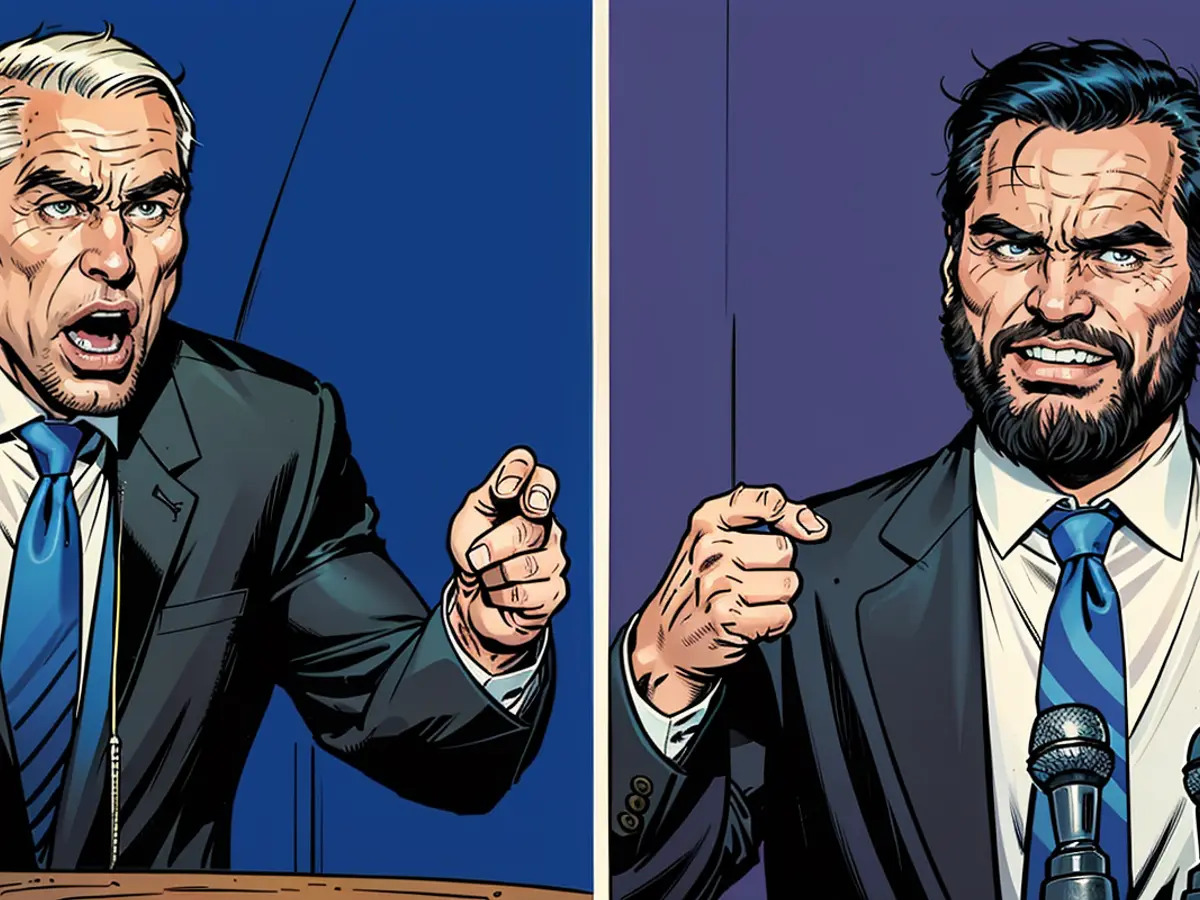The United States is engaged in a "highly intense" contest between its vice presidential candidates.
In the final stages of the US election campaign, vice-presidential hopefuls Tim Walz and J.D. Vance will duke it out on television on Tuesday. While Walz is considered a centrist, Vance is renowned for his aggressive attacks against political rivals, making for an anticipated confrontation.
Both politicians are capable opponents. As governor of Minnesota and a Democratic senate candidate from Ohio, they're vying for the support of disillusioned white working-class voters.
Their approaches contrast greatly. Vance, 40, spews harsh criticisms, hurling attacks on political opponents and painting a grim picture of a nation on the brink of collapse due to faulty economic and immigration policies. In his 2016 book "Hillbilly Elegy," he discussed the impact of industrial decline in the Rust Belt region, gaining instant fame. Politically, he started as a critic of Donald Trump but later transformed into a staunch supporter to secure the Ohio Senate seat in 2022.
Walz, 60, presents as a friendly older man spreading optimism. He outlines how the middle class will prosper under fair tax policies and increased opportunities, which will combat hatred and division if Kamala Harris assumes office. As a former teacher and coach from Minnesota, Walz gained notoriety with his phrase "weird" for Trump and Vance, leading to his fast track to the Harris team.
The Story of Carnivorous Immigrants
Walz might bring up Vance's disparaging remarks towards Democratic leaders like Harris, who are childless, likening them to "childless cat ladies" enjoying their lives. He may also raise Vance's controversial claim about cannibalistic migrants in Springfield, Ohio.
A former teacher in Minnesota, Walz initially lacked recognition. However, his criticism of Trump and Vance propelled him into the political limelight. As a Midwestern representative, he aims to secure crucial swing states to influence the election outcome.
In Minnesota, he advocated for workers' rights, stricter gun control, abortion rights, and environmental protection. These positions may be labeled "Marxist" and "radical left" by Vance and the Trump campaign, and attributed to Harris. Vance may also accuse Walz of embellishing his military service in the National Guard.
Final TV Showdown Before the Election
Tuesday's event will be watched by millions of American viewers (9 p.m. local time, 3 a.m. CET). Unlike the Trump-Harris debate on September 10, the microphones will remain on, potentially inciting spirited debates.
The vice-presidential debate may not hold as much sway as the presidential debates, but it's likely the last television showdown of the campaign, given Trump's refusal to join Harris for another on-screen confrontation. A misstep could prove costly, as the race for the White House is remarkably close.
"This is high-stakes drama, and I think that's what Americans are hungry for, and they might just get it on Tuesday," believes Thomas Whalen of Boston University. "Americans are enthralled by confrontation, and J.D. Vance and Walz are so different in personality and political stance that it could be worth tuning in to watch."
Tim Waltz might challenge J.D. Vance's comments about Democratic leaders being "childless cat ladies," as he did in the past. Additionally, Waltz could bring up Vance's controversial claim about cannibalistic migrants in Ohio.
In the upcoming TV debate, Walz, as a centrist candidate, may aim to present himself as a more tempered alternative to Vance's aggressive political style, appealing to voters seeking a less polarized approach.








